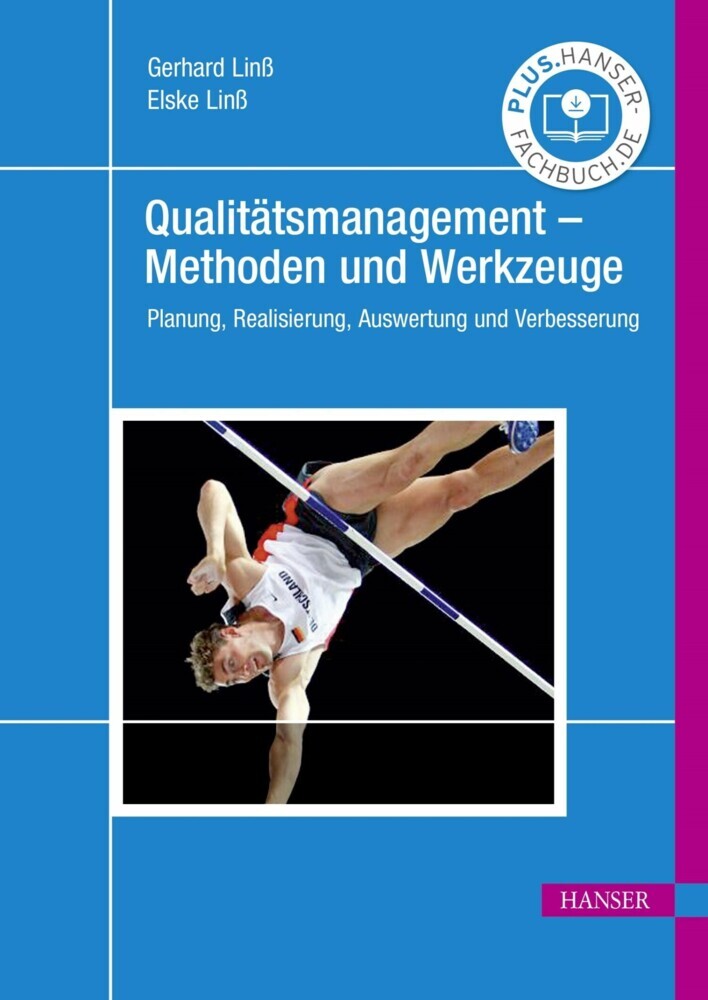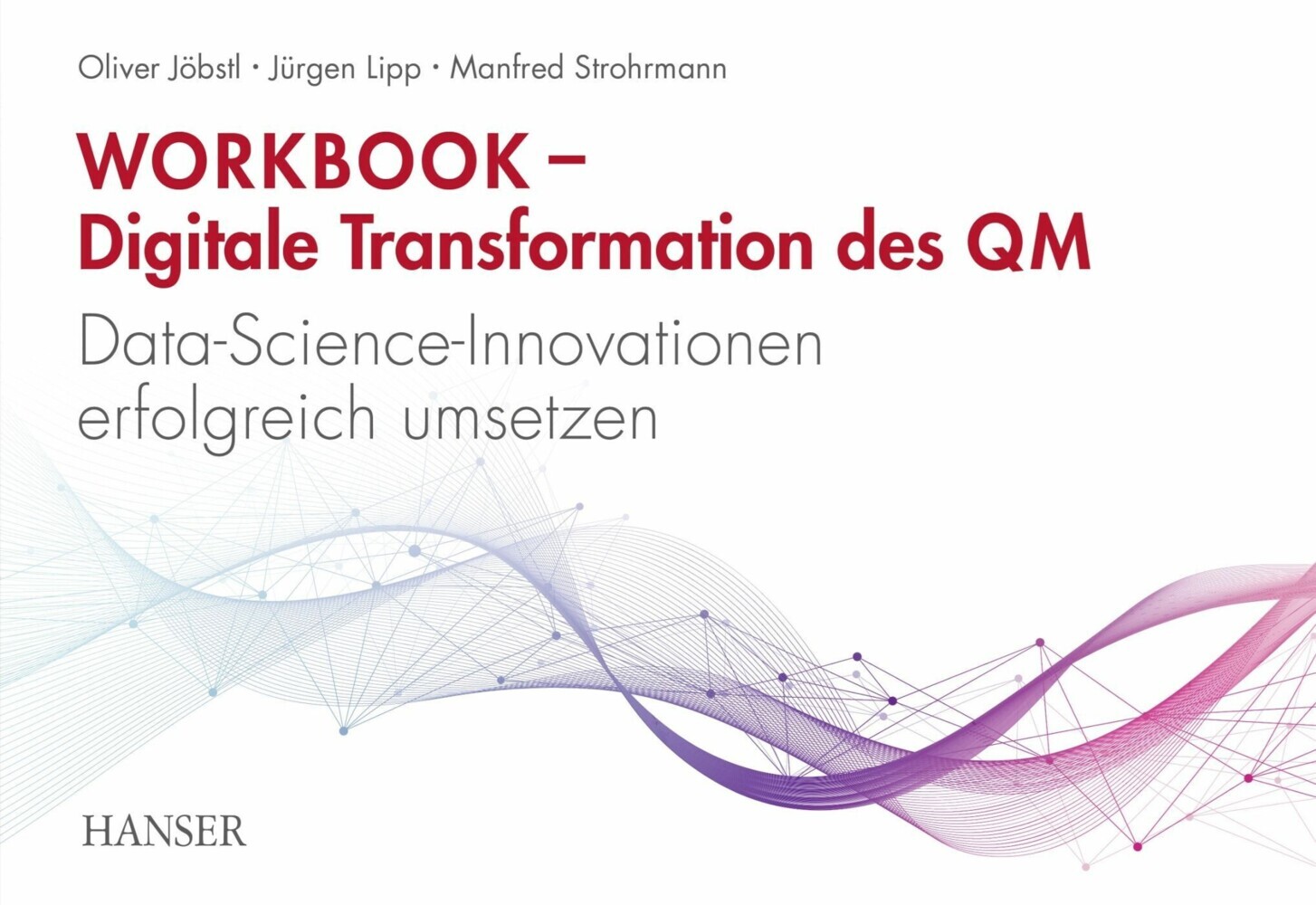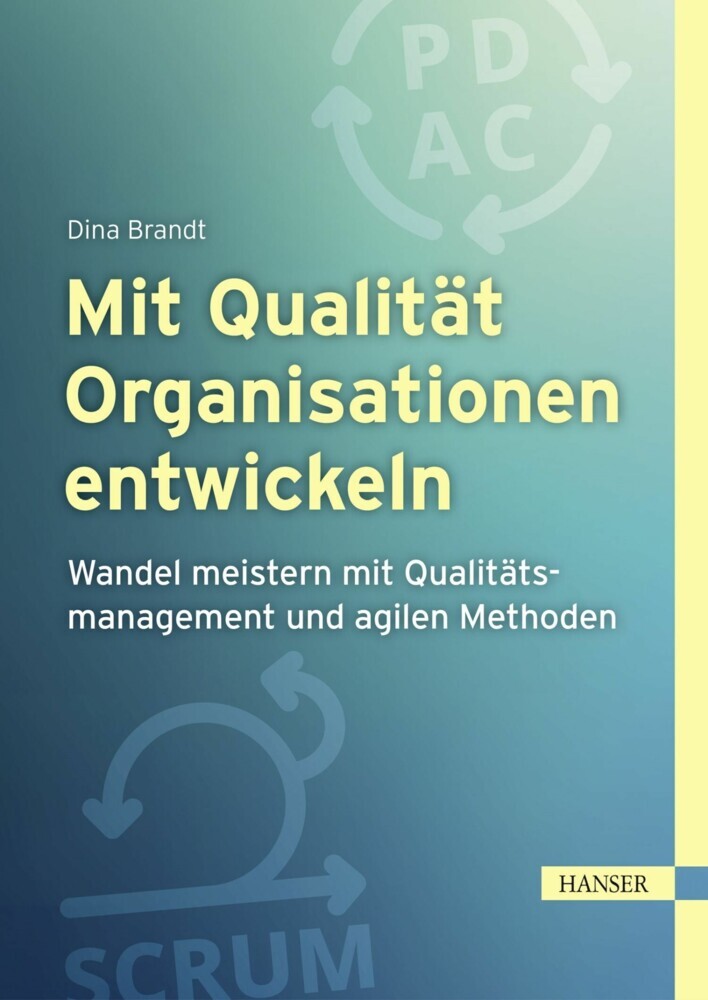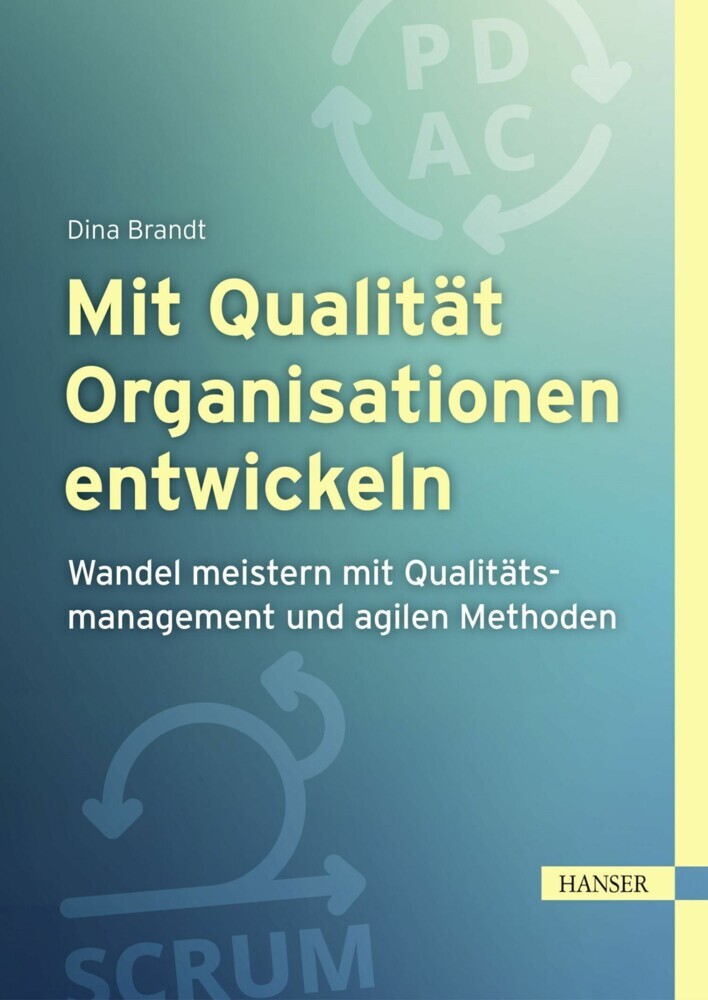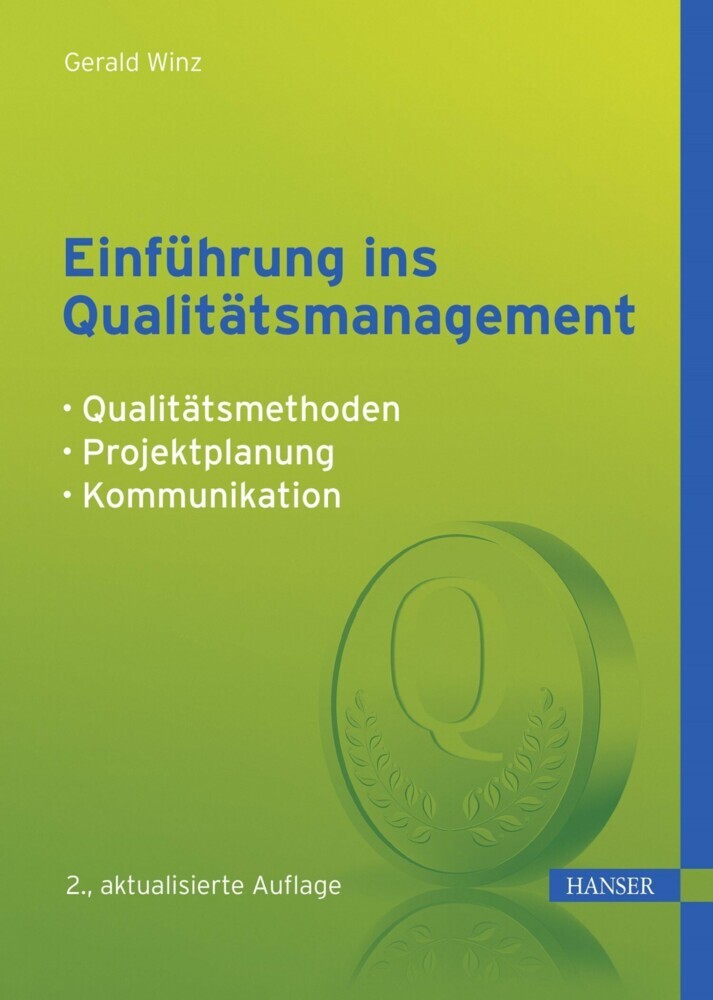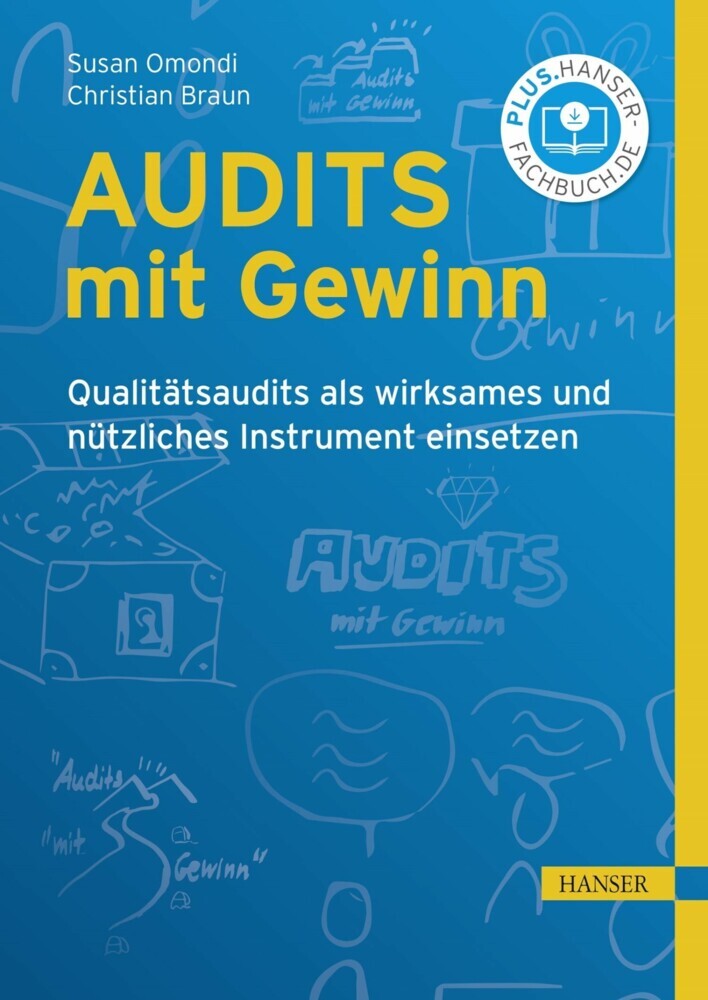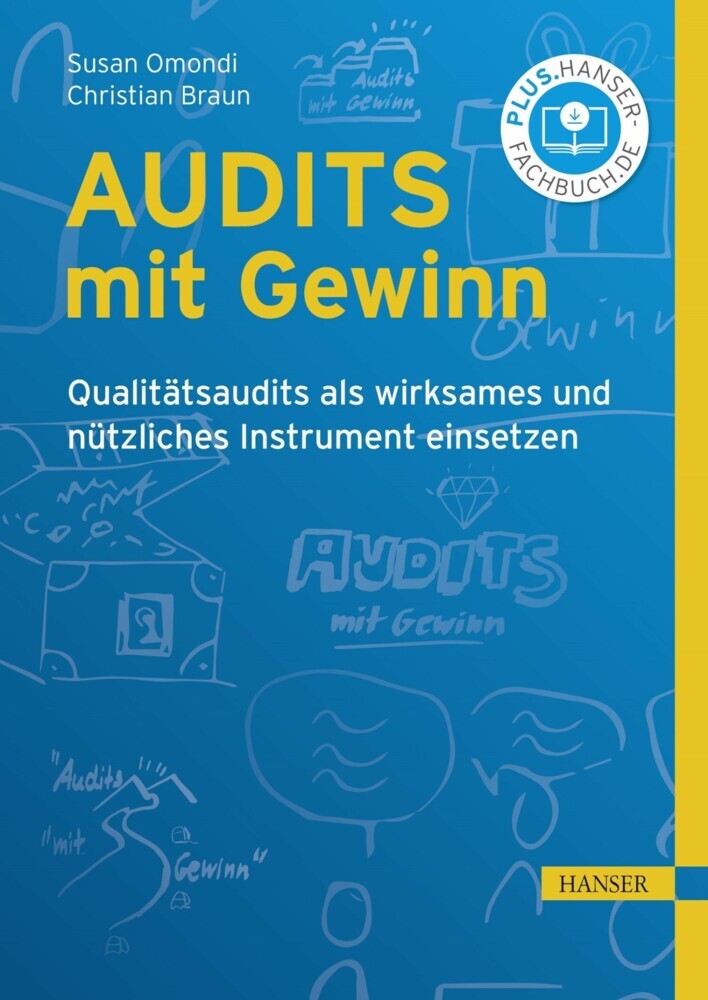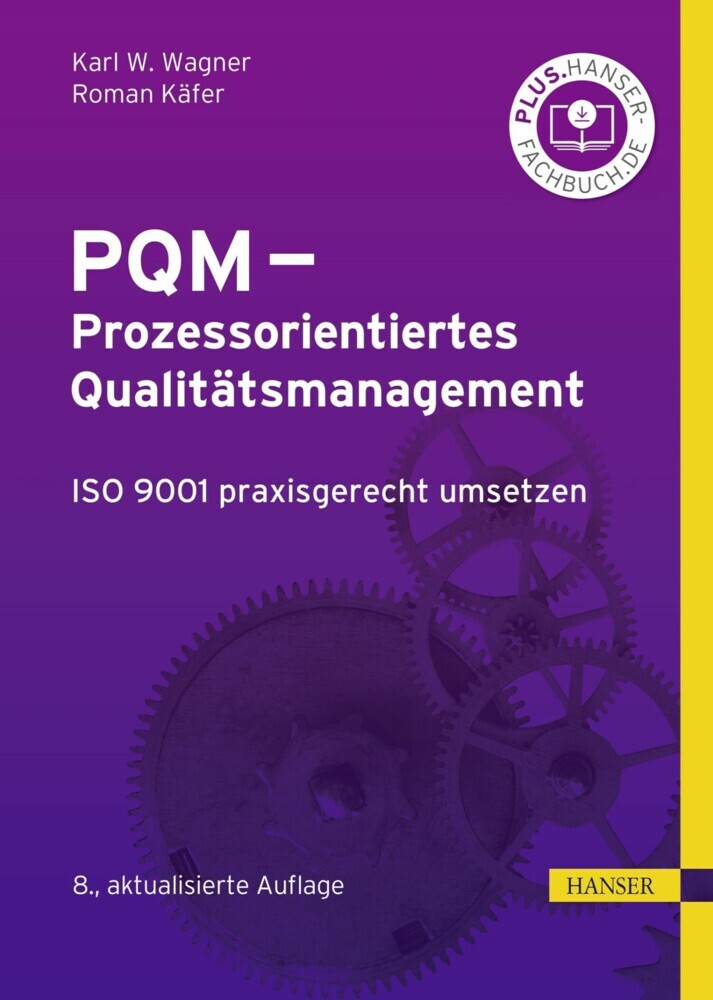Quality Management
"Quality remains when the price is long forgotten!"
This statement is attributed to Henry Royce, the co-founder of the highly reputable British company Rolls Royce. An analysis of the purchasing behavior of the consumers in the current climate of cut-throat competition and systematic customer-orientation shows that the corporate strategy of "Quality" holds out more promise than ever before, to manufacturing companies [prf]. It is hardly surprising therefore that the competitive element of "Quality" has come to rival the traditional competitive factors "Cost" and "Time" in recent years.
Quality, i.e. the key defining elements such as stability of value, durability, functionality and efficiency, is the main decision-making factor consumer goods and where both the complex products in the capital goods market are concerned. Thus, quality has a catalytic effect on market strategies worldwide. It is the decisive requirement for a "good reputation."
Those who have it find all doors open to them, those who have lost it, frequently perish or struggle desperately to have their names associated with that magic word "Quality" again. Forward-looking companies must face the challenge and invest in the development of an efficient quality management system. In the long term, only those businesses which succeed in implementing technological innovation swiftly and economically and who can respond to the requirements of customers with the appropriate products will be successful [teg]. This defines modern quality management in a nutshell.
Der Autor
Prof. Dr.-Ing. Tilo Pfeifer; Fraunhofer Institut für Fluktionstechnogie (IPT), Aachen; Abteilung Mess- und Qualitätstechnik; Werkzeugmaschinenlabor der RWTH Aachen (WZL); Lehrstuhl für Fertigungsmesstechnik und Qualitätsmanagement.
This statement is attributed to Henry Royce, the co-founder of the highly reputable British company Rolls Royce. An analysis of the purchasing behavior of the consumers in the current climate of cut-throat competition and systematic customer-orientation shows that the corporate strategy of "Quality" holds out more promise than ever before, to manufacturing companies [prf]. It is hardly surprising therefore that the competitive element of "Quality" has come to rival the traditional competitive factors "Cost" and "Time" in recent years.
Quality, i.e. the key defining elements such as stability of value, durability, functionality and efficiency, is the main decision-making factor consumer goods and where both the complex products in the capital goods market are concerned. Thus, quality has a catalytic effect on market strategies worldwide. It is the decisive requirement for a "good reputation."
Those who have it find all doors open to them, those who have lost it, frequently perish or struggle desperately to have their names associated with that magic word "Quality" again. Forward-looking companies must face the challenge and invest in the development of an efficient quality management system. In the long term, only those businesses which succeed in implementing technological innovation swiftly and economically and who can respond to the requirements of customers with the appropriate products will be successful [teg]. This defines modern quality management in a nutshell.
Der Autor
Prof. Dr.-Ing. Tilo Pfeifer; Fraunhofer Institut für Fluktionstechnogie (IPT), Aachen; Abteilung Mess- und Qualitätstechnik; Werkzeugmaschinenlabor der RWTH Aachen (WZL); Lehrstuhl für Fertigungsmesstechnik und Qualitätsmanagement.
1;Preface to the 1 st English-language Edition;62;Preface to the 3 German-language Edition;83;Content;104;List of Abbreviations;205;1 Introduction;245.1;References;326;Holistic Quality Management;346.1;2 Total Quality Management;366.1.1;Content;366.1.2;2.1 Introduction;376.1.3;2.2 The term Total Quality Management;386.1.4;2.3 Aspects of Total Quality Management;396.1.4.1;2.3.1 Company policy, strategy and objectives;396.1.4.2;2.3.2 Leadership;416.1.4.3;2.3.3 People orientation and satisfaction;436.1.4.4;2.3.4 Process orientation;446.1.4.5;2.3.5 Customer orientation and satisfaction;456.1.4.6;2.3.6 Result orientation;476.1.5;2.4 Implementing Total Quality Management;496.1.5.1;2.4.1 General approach;496.1.5.2;2.4.2 Human Resources;506.1.5.3;2.4.3 Quality programs and initiatives;526.1.5.4;2.4.4 Performance assessment and TQM maturity;546.1.6;2.5 Quality awards;546.1.6.1;2.5.1 Deming Prize;566.1.6.2;2.5.2 Malcolm Baldrige National Quality Award;576.1.6.3;2.5.3 European Quality Award;586.1.6.4;2.5.4 Ludwig- Erhard- Prize;616.1.7;2.6 Quality programs, initiatives and tools;616.1.7.1;2.6.1 Zero-defects program;616.1.7.2;2.6.2 Six Sigma;636.1.7.3;2.6.3 Continuous improvement;656.1.7.4;2.6.4 Tools used in quality management;706.1.8;2.7 Summary;746.1.9;References;746.2;3 Quality Management Systems;786.2.1;Content;786.2.2;3.1 Introduction;806.2.3;3.2 Fundamentals of quality management systems;816.2.4;3.3 Process-oriented quality management;866.2.5;3.4 Quality management and standards;996.2.6;3.5 Introducing QM systems;1056.2.7;3.6 Documenting QM systems;1246.2.8;3.7 Auditing and certification;1356.2.9;3.8 Integrated management systems;1436.2.10;3.9 Summary;1556.2.11;References;1556.3;4 Quality and Information;1606.3.1;Content;1606.3.2;4.1 Introduction;1616.3.3;4.2 Knowledge management;1616.3.4;4.3 Quality control loop and quality data base;1736.3.5;4.4 Computer assistance in quality management;1936.3.6;4.5 Overall summary;2096.3.7;References;2096.4;5 Quality and Economic Efficiency;2146.4.1;5.1 Introduction;2156.4.2;5.2 Definitions of quality-based costs;2156.4.3;5.3 Types of quality cost accounting;2186.4.4;5.4 Quality-based costs as part of the accounting;2246.4.5;system;2246.4.6;5.5 Objectives and functions of examinations;2286.4.7;of quality-based costs;2286.4.8;5.6 Evaluating quality-based costs;2296.4.9;5.7 Value analysis;2376.4.10;5.8 Target Costing;2426.4.11;5.9 Summary;2446.4.12;References;2456.5;6 Quality and the Law;2486.5.1;6.1 Introduction;2506.5.1.1;6.1.1 Consequences of insufficient quality;2506.5.1.2;6.1.2 Liability under civil law,;2506.5.1.3;not responsibility under criminal law;2506.5.1.4;6.1.3 Liability only for original defects;2526.5.1.5;6.1.4 Fault and deficiency;2526.5.1.6;6.1.5 The case of the thrust strut;2536.5.2;6.2 Contractual liability;2556.5.2.1;6.2.1 Introduction;2556.5.2.2;6.2.2 Liability for breach of warranty;2556.5.2.3;6.2.3 Contractual liability for consequential damage;2576.5.2.4;("Liability due to positive breach of contract");2576.5.2.5;6.2.4 Guarantee;2586.5.2.6;6.2.5 Claim to damages from a liable person;2596.5.2.7;6.2.6 Quality Assurance Agreement;2596.5.3;6.3 Non- contractual liability - meaning and intention;2636.5.4;6.4 Liability under the terms of the German Product Liability Act (ProdHaftG);2636.5.4.1;6.4.1 Introduction;2636.5.4.2;6.4.2 Requirements for liability;2646.5.4.3;6.4.3 " Products" and " Putting into circulation";2646.5.4.4;6.4.4 " Product Faults";2656.5.4.5;6.4.5 The damage to be compensated;2666.5.4.6;6.4.6 Persons legally deemed liable;2666.5.4.7;6.4.7 Exemption from liability;2676.5.4.8;6.4.8 Further important provisions of the German Product;2686.5.4.9;Liability Act (ProdHaftG);2686.5.4.10;6.4.9 Summary;2696.5.4.11;6.4.10 Outcome in the thrust strut case;2696.5.5;6.5 Liability under the terms of 823 Par. 1 German Civil Code (BGB);2716.5.5.1;6.5.1 Introduction;2716.5.5.2;6.5.2
Pfeifer, Tilo
| ISBN | 9783446224025 |
|---|---|
| Artikelnummer | 9783446224025 |
| Medientyp | E-Book - PDF |
| Auflage | 3. Aufl. |
| Copyrightjahr | 2002 |
| Verlag | Carl Hanser Fachbuchverlag |
| Umfang | 620 Seiten |
| Sprache | Englisch |
| Kopierschutz | Digitales Wasserzeichen |

